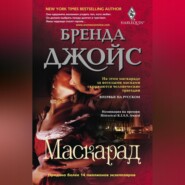По всем вопросам обращайтесь на: info@litportal.ru
(©) 2003-2025.
✖
Seduction
Автор
Год написания книги
2018
Настройки чтения
Размер шрифта
Высота строк
Поля
Julianne now saw that his breeches were bloodstained and dirty. She wondered if the bloodstains had come from his wound—or someone else’s. She didn’t want to look at his lean hips or his powerful thighs, so she quickly looked at his face.
Her heart slammed. Their guest was a very handsome man with swarthy skin, pitch-black hair, high cheekbones and a straight, patrician nose. Thick dark lashes were fanned out on his face.
She averted her eyes. Her heart seemed to be racing wildly, which was absurd.
Amelia thrust the wet cloth and pitcher into her arms and rushed forward. Julianne somehow looked up, aware of how hot her cheeks were. “Is he breathing?” she heard herself ask.
“I don’t know.” Amelia touched his forehead. “To make matters even worse, he has an infection, as the wound was not properly cared for. Doctor Eakins was not optimistic.” She turned. “I am going to send Billy down for seawater.”
“He should bring a full pail,” Julianne said. “I’ll sit with him.”
“When Lucas comes in, we will turn him back over.” Amelia hurried from the bedchamber.
Julianne hesitated, staring at the stranger, then pinched herself. The poor man was dying; he needed her help.
She set pitcher and cloth down on the table and approached. Very carefully, she sat beside him, her heart racing all over again. His chest wasn’t moving. She lowered her cheek to his mouth, and it was a moment before she felt a small puff of his breath. Thank God he was alive.
“Pour la victoire.”
She straightened as if shot. Her gaze slammed to his face. His eyes remained closed, but he had just spoken—in French—with the accent of a Frenchman! She was certain he had just said, “For victory.”
It was a common cry amongst the French revolutionaries, but he resembled a nobleman, with his patrician features. She glanced at his hands—nobles had hands as soft as a babe’s. His knuckles were cut open and crusted with blood, his palms calloused.
She bit her lip. Being this close made her uncomfortably aware of him. Perhaps it was of his near nudity, or his sheer masculinity. She inhaled, hoping to relieve some tension. “Monsieur? Êtes-vous français?”
He did not move as Lucas said, “Is he awake?”
Julianne half-turned as her brother entered the room. “No. But he spoke in his sleep. He spoke in French, Lucas.”
“He isn’t asleep. He is unconscious. Amelia said he is with fever now.”
Julianne hesitated, then dared to lay her palm on his brow. “He is very hot, Lucas.”
“Can you tend him, Julianne?”
She looked at her brother, wondering if his tone had been odd. “Of course I can. We’ll keep him wrapped in wet sheets. Are you sure Jack didn’t say anything about who he is? Is he French?”
“Jack doesn’t know who he is.” Lucas was firm. “I want to stay but I have to get back to London tomorrow.”
“Is something wrong?”
“I’m examining a new contract for our iron ore. But I’m not sure I like leaving you and Amelia alone with him.” His glance was on their guest again.
She stared, and finally Lucas stared back. When he chose to be impassive, it was impossible to know what he was thinking. “Surely you don’t think he might be dangerous?”
“I don’t know what to think.”
Julianne nodded, turning back to her charge. There was something odd about that exchange, she thought. She suddenly wondered if her brother knew who their guest was—but didn’t want to say so. She turned to glance after him, but he was gone.
There was no earthly reason for him to withhold any information from her. If he knew who this man was, he would surely tell her. She was obviously wrong.
She stared at the dark stranger, hating not being able to help him. She pushed a hank of thick, dark hair out of his face. As she did, he thrashed so suddenly that his arm struck her thigh. She leapt up in alarm as he cried, “Ou est-elle? Qui est responsible? Qu’est il arrivé?”
Where is she? Who has done this? she silently translated. He thrashed again, even more forcefully, and Julianne was afraid he would hurt himself. He moaned loudly, in obvious pain.
She sat back down on the bed, by his hip. She stroked his hot shoulder. “Monsieur, je m’appele Julianne. Il faut que vous reposiez maintenant.”
He was breathing hard now, she saw, but he wasn’t moving and he felt warmer than before. Yet that had to be her imagination. And then he started to speak.
For one moment, she thought he was trying to speak to her. But he spoke so rapidly and furiously, so desperately, that she realized he was delirious.
“Please,” she said softly, deciding to speak only in French. “You have a fever. Please, try to sleep.”
“Non! Nous ne pouvons pas nous retirer!” It was hard to understand him, but she strained to make sense of the rapid-fire, jumbled words. We cannot go back now, he had said. There was no doubt in her mind that he was French. No Englishman could have such a perfect accent. No Englishman would speak in a second language while in a delirium.
Julianne crouched by his side, trying to understand him. But he was thrashing violently, enough so that he rolled onto his back, all the while shouting. He cursed. They could not go back. They could not retreat! Was he speaking about a battle? He shouted. So many had died, but they had to hold this line! No, no, he screamed. Do not retreat! Hold the line! For liberty!
Julianne clasped his hot shoulder, tears blurring her eyes. He was most definitely reliving a terrible battle that he and his men were losing. My God—could he be a French army officer?
“Pour la liberté!” he cried. “Go on, go on!”
She stroked his shoulder, trying to offer him comfort.
The river was filled with blood… Too many had died… The priest had died… They had to retreat. The day was lost!
He wept.
She did not know what to do. She had never seen a grown man cry. “You are delirious, monsieur,” she tried. “But you are safe now, here, with me.”
He lay panting, his cheeks wet with tears, his chest shining with perspiration.
“I am so sorry for what you have suffered,” she told him. “We are not on the battlefield. We are in my home, in Britain. You will be safe here, even if you are a Jacobin. I will hide you and protect you—I promise you that!”
He suddenly seemed to relax. Julianne wondered if he was sleeping.
She inhaled, shaken to the core of her being. He was a French army officer, she was certain. He might even be a nobleman—some of the French nobility had supported the revolution and now supported the Republic. He had suffered a terrible defeat in which many of his men had died and it was haunting him. She ached for him. But how on earth had Jack found him? Jack did not support the revolution, yet he wasn’t exactly a British patriot, either. He had told her once that the war suited him immensely—smuggling was even more profitable now than it had been before the revolution.
The man was so hot to the touch. She stroked his brow, suddenly angry—where was Amelia? Where was the ocean water? “You are burning up, monsieur,” Julianne told him, continuing in his native tongue. “You must be still and get better.”
They had to get his fever down. She re-wet the cloth, and this time, stroked it over his neck and shoulders. Then she laid the cloth there, picking up and wetting another one.
“At least you are resting now,” she said softly, then realized she had lapsed into English. She repeated what she had said in French, sliding the cloth across his chest. Her pulse accelerated.
She had just laid the wet cloth on his chest again, where she meant to leave it, when he seized her wrist violently. She cried out, shocked, and her gaze flew to his face.
His green eyes were blazing with fury.
Frightened, she gasped, “Êtes vous reveillé?” Are you awake?

















